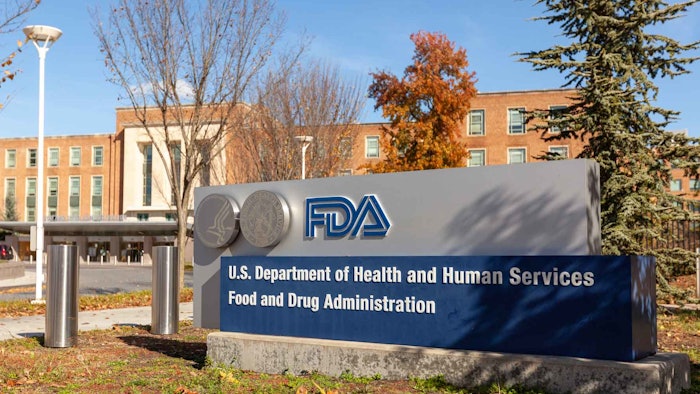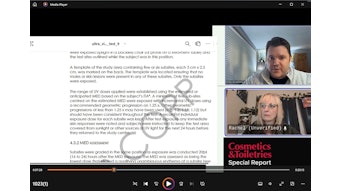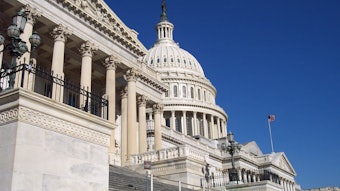
In a letter to clients, Steinberg & Associates provided an overview of what the recent passage of the 2023 Consolidation Act, including the Modernization of Cosmetics Regulation Act 2022 (MOCRA), means for the cosmetics industry. In the firm's words, "A lot." Below is the report, reprinted with permission; follow us for a future update with more detailed information.
See related: Industry Stakeholders Back the FDA to Modernize Cosmetic Regulations
"On Dec. 29, 2022, President Biden signed HR 2617 into law. ... This 1,653-page bill includes 14 pages on cosmetics, [including the following].
1. Facility Registration by 12/29/2023
"If you don't manufacture your products, ensure your manufacturer does, and keep their registration number on file. Facility registrations must be renewed biennially, so put it in your To-Do for December 2024 to ask your manufacturer to provide confirmation that they filed the biennial update. If you utilize a new facility, you have only 60 days to ensure that facility is registered. Foreign facilities require a U.S. agent.
2. Product Registration by ? (TBD by FDA)
"If you have registered under the Voluntary Cosmetic Registration Program (VCRP), you may be covered for the initial registration. However, cosmetic product registrations must be updated annually. New products must be registered within 120 days of introduction into interstate commerce.
3. GMP by 2025
"You'll want to ensure your manufacturer adheres to GMP. The U.S. Food and Drug Administration (FDA) is required to publish a proposed regulation before 12/29/2024 and the final by 12/29/2025. In the meantime, ISO 22716 would be a good standard to utilize.
4. Product Labeling
"Product labels must be updated to include fragrance allergens — which allergens is a matter to be proposed by the FDA by June 29, 2024, and finalized by 180 days after the comment period ends (possibly early in 2025?). However, MOCRA states that labeling must be updated by Dec. 29, 2025.
"This could be interesting. The good news is the FDA now allows for more flexibility in the contact information: domestic address, domestic phone number or electronic contact information, which may include a website.
5. Adverse Events
"You must keep records of all adverse events reported. Serious Adverse Events must be reported to the FDA.
6. Safety Substantiation
"This is the scariest. It's vaguely defined. Adequate substantiation of safety means tests or studies, research, analyses or other evidence or information that is considered, among experts qualified by scientific training and experience to evaluate the safety of cosmetic products and their ingredients, sufficient to support a reasonable certainty that a cosmetic product is safe.
"If you have an EU or China safety report, that may suffice. If you don't, we strongly recommend getting a formal safety report on file.
7. Fragrance Ingredients
"You are required to have information on file regarding at least the categories of chemicals contained in any fragrances you use. If the FDA feels a flavor or fragrance you use in a product contributed to a Serious Adverse Event, you must provide lists of such ingredients or categories of ingredients within 30 days.
Exemptions include:
- "Small businesses < $1,000,000 average sales over last three years, unless the product comes in contact with eye mucous membrane, is injected, is for internal use or alters the appearance for > 24 hours;
- [This] does not apply to OTC drugs that make cosmetic claims (OTC Drug regulations apply); and
- [A preemption is made] only for registration of facilities and products as required by MOCRA. [Note that] Proposition 65, CASCA, etc., and state ingredient bans are not pre-empted.
Miscellaneous (Talc and PFAs)
- "The FDA must publish a proposed test protocol for asbestos in talc by 12/29/2023, with finalization 180 days after the comment period ends.
- The FDA must assess the use of PFAS in cosmetics and publish the results by 12/29/2025.
- [Finally], animal testing must be phased out except for 'appropriate allowances.'"
The firm notes it can help with registrations as soon as the FDA has portals up and running.










